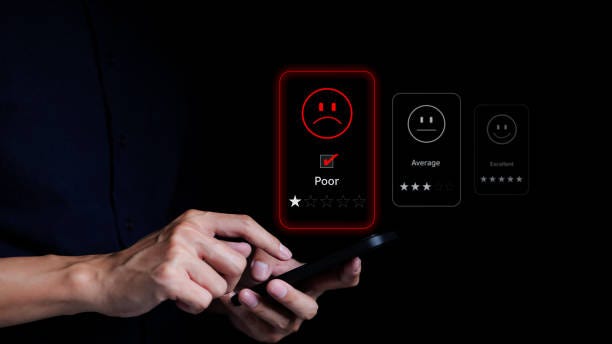Unveiling Gaps in Consumer Protection Policies
A case study on consumers underserved by their financial institution
Hi there, it’s Janice. I started this newsletter to provide a straightforward, guided approach to understanding and managing the complex dispute process. That includes disputes from the issuing bank, acquiring bank and merchant's perspectives. Subscribe and never miss an issue. Questions you’d like to see me answer?
Fraud in commerce isn't a novel concept. We've all heard of 'friendly fraud', where some consumers exploit loopholes for unwarranted refunds or chargebacks. Yet, what about when honest customers like you and me fall prey to merchants who fail to fulfill their promises? This is where consumer protection laws and card network rules come into play, aiming to safeguard us from such scenarios and uphold our trust in the system.
Picture this: A conscientious consumer invests in significant services, only to be met with disappointment when expectations aren't met. Despite earnest attempts to address the issue directly with the merchant, they encounter resistance and unmet assurances. Enter one of the top banks in the US, we’ll call TopBank, one of the US's leading financial institutions, tasked with safeguarding consumers' interests. Armed with evidence of substandard service and the merchant's failure to rectify the situation, the consumer turns to TopBank for assistance.
Disputes over the quality of goods or services typically require consumers to first engage directly with the merchant for resolution. It is essential to adhere to this step, as bypassing it and directly contacting the bank to reclaim funds may hinder the merchant's opportunity to rectify the issue.
In this case, the consumer diligently followed established protocols. Only after exhausting efforts to resolve the matter with the merchant did they turn to their bank, providing all required documentation and more, as requested.
However, what unfolds is an unsettling realization of TopBank's limitations in delivering effective consumer protection. Despite compelling evidence of the merchant's malpractice and the consumer's valid grievances, TopBank's policies falter in providing the expected support and resolution. Deceptive claims by the merchant and misinterpretation of Mastercard rules by TopBank's call center lead to a flawed assessment of the dispute.
At the crux of the issue lies the merchant's deceit and unethical behavior. Despite failing to deliver satisfactory service, they resort to fabricating falsehoods to evade accountability and deceive both the consumer and TopBank. The bank accepts these false representations as valid without considering the broader context and evidence provided by the consumer, as mandated by its protocols.
TopBank's call center's misinterpretation of Mastercard regulations exacerbates the situation, resulting in misguided decisions and inadequate safeguards for the consumer. Instead of conducting a thorough inquiry and addressing the root cause of the dispute, TopBank's policies prioritize technicalities over substantive evidence, leaving the consumer vulnerable and inadequately supported.
When the consumer reaches out to the bank seeking clarification, TopBank, in a misguided attempt to address the issue, requests additional evidence, some of which necessitates hiring another professional opinion at the consumer's expense.
Upon submitting this expert second opinion, the consumer anticipates a fair reassessment by the bank. However, after extensive discussions, the bank ultimately rejects the consumer's claim, citing the original falsehoods presented by the merchant, effectively wasting the consumer's time and financial resources invested in obtaining an expert second opinion.
Mastercard Network Rule: For Disputes Involving Goods or Services were Not as Described or Defective: When not provided with the chargeback, documentation from an expert or professional (on their business letterhead, with a business card attached, or validated by other information demonstrating that the opinion expressed is that of an expert) that supports the cardholder’s dispute about the level of quality or misrepresentation may be required when the validity of the dispute is challenged by the merchant.
This case highlights the pressing need for stronger consumer protection measures and greater accountability within the financial industry. By exposing flaws in existing policies and advocating for reform, consumers can demand fair treatment and effective resolution when disputes arise. It is imperative that financial institutions, like TopBank, prioritize consumer protection and uphold their duty to faithfully serve their customers.
This case study serves as a wake-up call for banks to overhaul their internal consumer protection policies and hold merchants and financial institutions accountable for their actions.
Need Help?
If you need help in managing your chargebacks, or simply need advice:
I offer a range of services to help businesses effectively manage payment disputes and protect their revenue:
Chargeback Management: Comprehensive strategies to minimize the impact of chargebacks, including prevention techniques, representment, pre-arbitration and arbitration guidance, and dispute resolution best practices.
Risk Assessment: Thorough assessments of your current payment processing practices, identifying vulnerabilities and providing actionable recommendations.
Data-Driven Insights: My recommendations are based on thorough analysis of your business data, industry trends, and best practices, enabling confident decision-making.
Training and Education: Customized training programs to empower your team with the knowledge and skills to handle payment disputes effectively, as an issuer, acquirer, payment processor or merchant.
Strategic Consulting: Tailored strategies that align with your unique business goals, ensuring long-term success in the face of evolving chargeback challenges.


